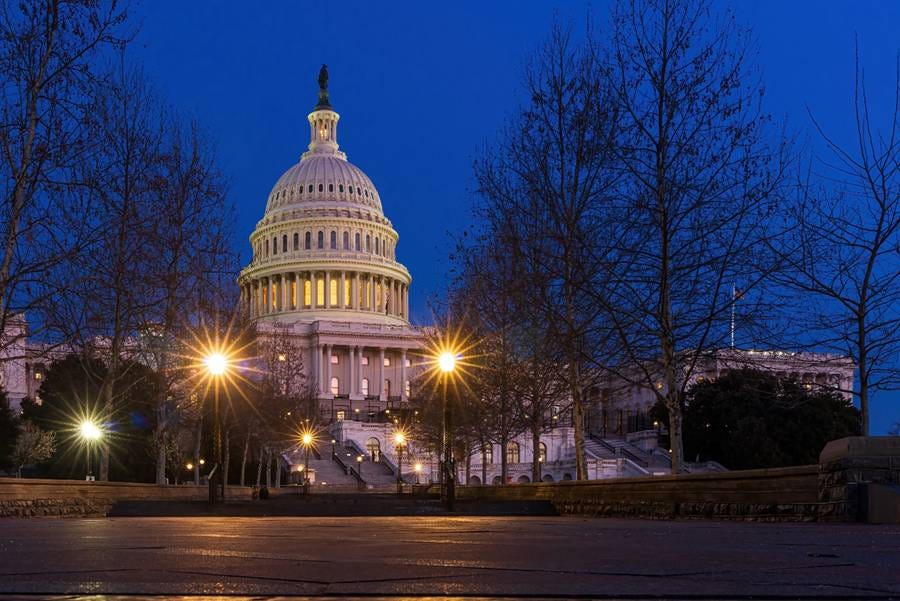Quick answer to WHO?
No doubt you have heard that Congress was granted “The Power of the Purse”. Among other powers, the constitution says Congress has comprehensive fiscal powers:
All legislative Powers herein granted shall be vested in a Congress of the United States, which shall consist of a Senate and House of Representatives (Spending is done by legislating.)
Power To lay and collect Taxes, Duties, Imposts and Excises, to pay the Debts… (Income)
To borrow money on the credit of the United States; (The other way to get money to spend)
All members of Congress swear to an oath of office to “…support and defend the Constitution of the United States against all enemies, foreign and domestic...”
Why Congress? The framers of the constitution wanted the powers of the purse to be exercised by the branch composed of many members, now 535, elected regularly by the people. AND we people are the ones with “skin in the game”, meaning a personal investment or stake. We and our children and grandchildren will all be affected by the skill and timing with which Congress deals with our federal fiscal predicament.
The graph below shows huge gaps between revenues and spending for almost the past 20 years. The future shows the gap continuing to grow wider. The CBO makes its projections based on current laws in force and its best efforts at economic forecasting. The message is that big improvements are needed soon. However, as I am typing this article, around 50% of Congress is trying very hard to add several trillion dollars of additional debt over the next 10 years – rather reducing it.
The quick, but exasperating, answer, to WHO must deal with the fiscal predicament is Congress! No other entity has the power to do it.
“Houston, we have a Problem!” (credited to astronaut Jim Lovell of the Apollo 13 mission)
Congress has morphed into an entity with serious shortcomings in the “problem solving” realm. See some examples of important, unsolved, national problems:
Deficit spending and federal debt
Solvency of Social Security
Solvency of Medicare
Climate Change
Congressional Influence on Foreign Policy
Delegation of inordinate powers to agencies – to unelected decision makers
Congress’s own internal issues causing dysfunction and lack of problem solving
Also, Congress has not been doing a professional job of managing money as evidenced by the following partial list:
Since 1977, passing all appropriations bills on schedule only 4 times
Often not passing a complete budget by the first of the upcoming fiscal year
Lumping appropriations into huge and complex “omnibus” bills rather than passing 12 separate appropriation bills
Causing shutdowns by inaction
Continually supporting deficits and creating more debt
You may be asking why I am making the case that Congress isn’t doing good work of solving our big problems, especially those of a financial nature. Well, “just the facts ma’am”, as Joe Friday of the Dragnet TV show used to say, and these facts need to be acknowledged.
You also would be reasonable asking how and why Congress has painted itself – and us citizens – into this corner and what we can do about it. Well, that will be the longer topic of the “Congress is Vital” Substack series beginning in August.
Wrap Up
I realize that I have made the case above that our system of government points directly to Congress as being the entity that must produce “enduring fiscal discipline” to replace the dangerously growing federal debt path. On the other hand, I stressed that Congress has a poor track record in recent years of solving big problems, especially fiscal ones. Thanks for joining the search for the solution to this dichotomy.
Time is of the essence. The U.S. has already built up a huge debt, and the interest costs, now more than the budget of the Defense Department, on it are crowding out programs valuable to citizens. Further delays in taking effective action will only make the task more overwhelming as shown below.
The reader may be thinking “You are saying that Congress must solve the huge and complex fiscal problem but doing so on the floors of Congress using business-as-usual methods doesn’t seem likely to be successful.” You would have ample reason for saying that.
There is a way for Congress to fulfill its responsibility while punting almost all the detail to a group of experts – a Congressional Commission. That will be the topic of the next post about July 15 on “HOW Congress Can Produce a Plan to put America on the Path to Enduring Fiscal Discipline.”
I suppose that you have noticed that the name of my Substack is Congress is Vital. I believe this name is a true statement. But, with the extensive powers Congress has, there is an abundance of opportunity for improvement in its problem-solving efforts and results, and fiscal discipline is a great starting point.
This axiom fits our present predicament.







